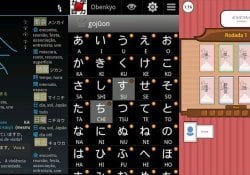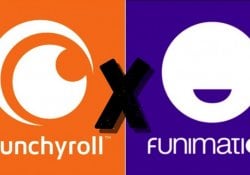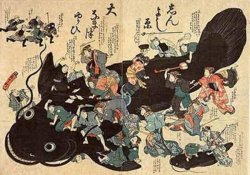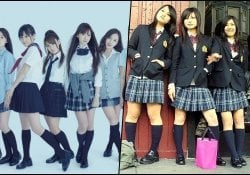In today's article we will see some slang in Japanese among the thousands that exist and are used in Japan. In Japanese there are millions of slang, abbreviations and others, all due to the amount of ideograms, kanji readings, and the japanese dialects.
Slang can be informal, regional, foreign, abbreviations, or just different ways of saying a certain word. In this article, we will see several slang terms that are widely used in Japanese daily life.
Wakamono Kotoba - Slang for Japanese Youth
Young people are usually the ones who most often use slang in everyday life. The Japanese have their own word for the slang used by young people. Such a word is wakamono kotoba [若者言葉] which literally means words of youth.
Most of the slang and words mentioned in this article fall into this category of wakamono kotoba. Remembering that sometimes simple changes to existing words, sounds and some expressions can fit into the slang and jargon of young people.
The language of Wakamono is mostly used by teenagers around 20 years old, but it is rarely used in other generations, even though recently people of all ages have used it. There are some youthful words that have started to be used recently, and some that have been passed down to young people for generations.
Juvenile language did not originate in the modern age, but in the ancient book of observations and reflections”Makurasoshi“. This book treats the language of the youth of the time as a disorder that frequently received social criticism.
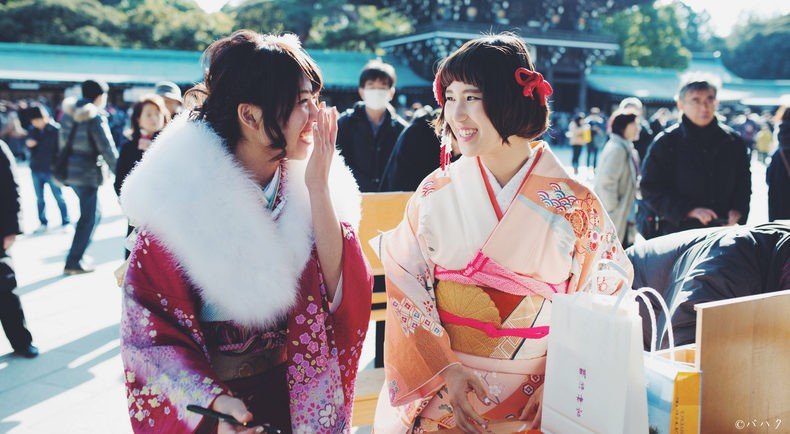
Top slang in Japanese
Let's start by showing you some simple slang that don't need much explanation. Then we will see the main Japanese slang explained a little more in depth. Let's see a lot of Japanese slang in this article, I hope you like it:
- Shiitake [したっけ] - Slang that appears at the end of the anime/manga Erased from the Hokkaido region meaning "bye, see you later";
- great [バイト] - Slang for the word "arubaito", used to refer to part-time work or some services". It comes from the German "Arbeit";
- Chotto ii? [ちょっといい?]- A soft way of saying, do you have a second? Have a little time? We can talk a little?
- lady [だめ] - A colloquial word for "it's not good" or can not";
- Ito [えと] - A way of saying "Umm..." And is also used to soften questions or requests. It's also common to make it more like in "Ettoo..." to match the amount of bewilderment or thought;
- Fact!- [ファイト!] - Borrowed word from English "Fight" which means "fight" and is used in sports or competitions as "Do your best!" or as the "Gambatte!";
- Hara Heta [腹へた] - A colloquial way of saying "I'm hungry". Not very polite to older people;
- Hour [ほら] - Means "Look!" or "See?". If lengthened to "Horrraaaa..." (With a certain tone) it can mean "I told you so...";
- Iyada [イヤだ] - It means "I don't want to do this" or "I don't want to see" (aversion or fear). Usually, the "I" at the beginning is omitted or shortened so much that it's hard to hear;
- Ki ni shinaide [気にしないで] - It means "Don't worry about it";
- Nandake [何だけ] - Used to say when the person doesn't remember or didn't hear it, ironically or not and used for oneself. "What was it again?..";
- Osu [オス] - An informal way of greeting someone (usually used with friends);
- Shimatta [しまった] -. A way of saying "Damn" when you've done something you didn't mean to;
- suggest [スゲ] - A more informal way of saying " suck "
- Use [嘘-うそ] - Lit. "Lie", can also mean "No way!", "You've got to be kidding me!" and etc;
- Wagamama [わがまま] – A term for a spoiled and/or selfish person;
- Zannen [ざんねん] - Meaning "it's a shame". often used for insults;
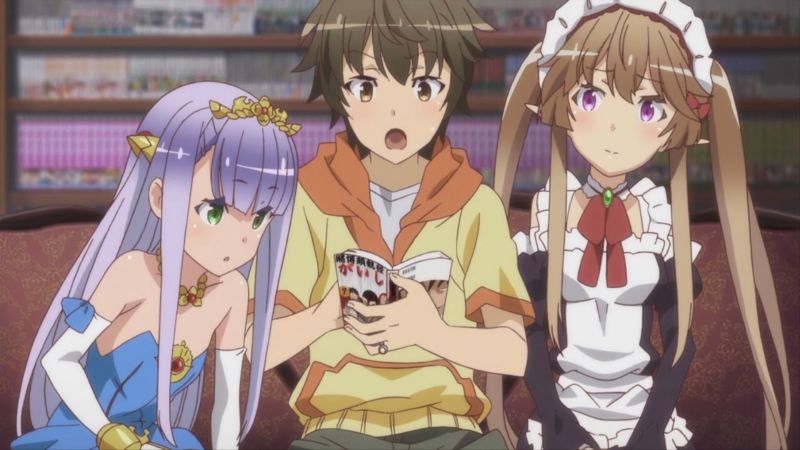
Mendokusai - When something is not right
The word mendoukusai [面倒くさい] means "smelt trouble" where mendou means trouble and kusai means stink. The word mendokusai is used to express displeasure with something. Saying that something is a nuisance, boring, difficult and problematic.
We wrote an article that talks in detail about the Meaning of Mendokusai! In it you will see that this word is used for various irritating, boring, difficult, problematic and difficult situations. In addition to mendokusai we also have slang like:
- Mazui [まずい] – Literally used for foods that aren't bad, can also be applied to other things that aren't good.
- Kimoi [キモイ] - Slang for the word kimochi warui, meaning "bad feeling", "bad feeling" or "disgusting".
- Zurui [ずるい] - An adjective with a negative meaning. It means something along the lines of "sneaky" or "playing dirty".
- Hidoi [ひどい] - Used to say "you mean", "you bad" and other related terms.
There are many other slang and insults, we recommend reading our other article: Warui Kotoba - Swearing in Japanese by clicking here.

The article is still halfway through, but we recommend also reading:
Yabai - Japanese slang for something good and bad?
One of the most popular slang in Japan is yabai [やばい]. This word can mean either something good or something bad depending on the usage. first the word yabai [やばい] means something dangerous, inconvenient, risky, unexpected and terrible.
In short, yabai means it's not good, but over time the word began to mean “I was unexpectedly surprised and shocked“. Young Japanese people started to invert its meaning to something good, cute, delicious, cool and amazing.
Of course yabai not only that, so much so that we have our own article showing in detail the meaning of yabai. We recommend reading the article to understand how to use this very popular and controversial slang.
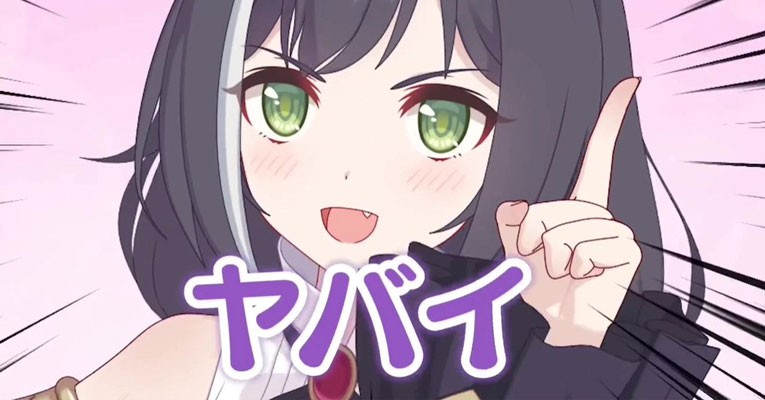
Japanese slang derived from English
Freeter (フリーター) – Pronounced furiitaa, literally means freelancer or temporary employee. the word difference baito (バイト) with freeter is that baito they are usually students or housewives who work temporarily in a job. Already freeter usually works in various jobs and chose this life of self-employed or performing small services.
Arasa (アラサー) – Japanese expression derived from English that refers to women around 30 years old. It was based on the English expression around thirty Which means around 30.
Rafu (ラフ) - Term taken from English (rough) which can mean rough, rude and harsh. This expression used to refer to an initial plan or draft, is currently commonly used for people who are casually dressed (rafu na kakkou -ラフな格好) or to refer to the casual attire (rafu na fukusou - Casual attire).
Suru (スルー) - Born from the English word "through"many times means go through something or ignore something (mushisuru [無視する]).
Dantotsu (ダントツ) It's an expression sort of derived from English that means by far the best. She is an abbreviation of dance toppu (断然トップ). I think most people know that top it's top in english.
NG - is pronounced enuji, an abbreviation for no good which expresses that something is not good or is not right.
OL - is pronounced o-eru, is an abbreviation for an office lady, feminine of salesman.
Mazakon (マザコン) – An expression referring to a person who is excessively attached to his mother.
Nau - Now from the English now which means now, is usually used on the internet.

Japanese abbreviations, expressions and slang
Ahiru-guchi and Ochobo-guchi – This expression represents the act of moving your lips or pushing them together while taking a picture. In the West it is known as the duck face. Another expression that indicates the fish face is called tarako lips
Torusoo – Modern word (not trunk) that refers to a mannequin. arose from the expression you will be displaying what does clothes mean displayed.
Dotakyan (ドタキャン) – Meaning last minute cancellation, it is an abbreviation of the expression dota nba kyan seru.
Majide (マジで) - Expression that means "seriously?".
Kuri botchi (クリぼっち) – Expression that indicates someone who is spending Christmas alone. Kuri comes from kurisumasu which is natal and bocchi comes from the expression hitori botchi.
Ossu (おっす) – A military salute that was once considered highly formal and is still common among martial artists. Often used by children in place of hi.
Nori nori (ノリノリ) – Derived from the verb noru (乗る) which means to direct or move forward. This expression is often used to indicate a fun, excited person with high spirits.
Guroi (グロい) – Used to describe something grotesque, horrible, repulsive, scary, or gory.
- For more abbreviations and acronyms, we recommend reading our article on Acronyms and Abbreviations in Japanese.
Internet slang used by the Japanese
Many slang terms mentioned in this article are constantly used by the Japanese on the internet and social networks, but there are some specific ones that deserve to be highlighted and that are kind of exclusive to the internet. Ready to meet them?
Before we see the main ones, I want to list the slang that don't need much explanation:
乙 - An internet slang meaning Otsukaresama (お疲れ様) or thanks for your hard work. All this because the kanji reading 乙 is otsu.
△ (ema, taro) - Used on the internet and niconico, 2chan to say something is cool.
- 鯖 – Ideogram of saba fish, but on the internet it refers to some bad and dubious service.
- Mjk - Abbreviation of majika what does serious mean?
- Baka - Donkey in Japanese;
- DQN - Abbreviation of Dokyun which means stupid;
- 888 - Means congratulations and applause;
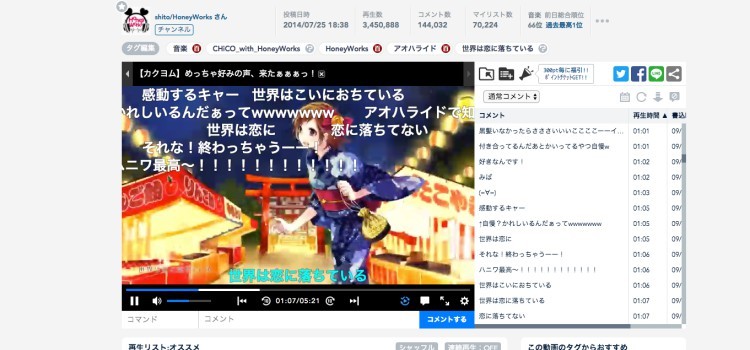
The Laughs Online - wwwww
The Japanese use the letter "W" as if they were our Brazilian "kkkkkk". Some use multiple wwww or even one W at the end of the sentence for laughs on the internet. So whenever you see a lot of WWWW on niconico douga already know what it means.
the reason why W is used is because it was derived from warau [笑う] which means to laugh in Japanese. Another theory is that its origin comes from [はは] which is also a laugh, but in short its writing can be wawa. Another way to laugh online is by typing the kanji for laughter in parentheses (笑).
On the internet people also use the ideogram of grass kusa [草] for a laugh, something similar to lol. For example: 寝たい〜草 in serious portuguese "I want to sleep lol". The reason is that many W together hare a grass [wwwwwwwwwwwwwww].
Best Friends in Japanese
The Japanese have a slang widely used on the internet to refer to great and best friends or best friends from English. In Japanese, the word zuttomo [ずっ友], an abbreviation for zutto which means always and tomo which means friend.
orz - Seiza in Japanese
Leaving for the world of emoticons, orz it's not literally the lyrics orz but rather an emoticon like xD. Try to look from the side and connect the O with Z and with R, you will see a doll in the shape of a seiza. Therefore, this is used to honor or apologize.
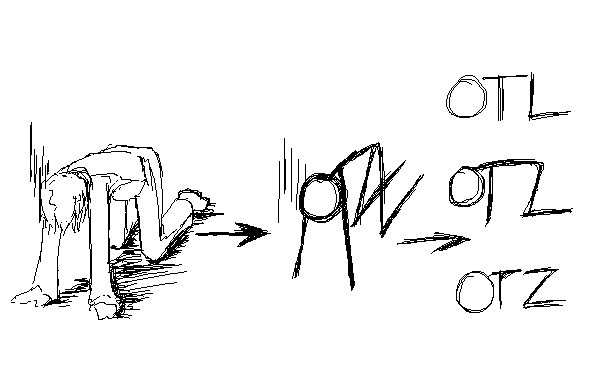
Owakon - Old Content
Owakon is internet slang that means something like old content. You know that old video or article that is already outdated? The Japanese call it owakon, which is a combination of owatt [終わった] which means ending with kontento [コンテント] which means content.

